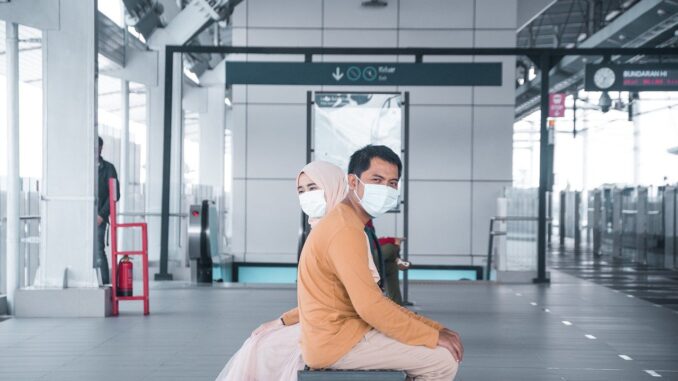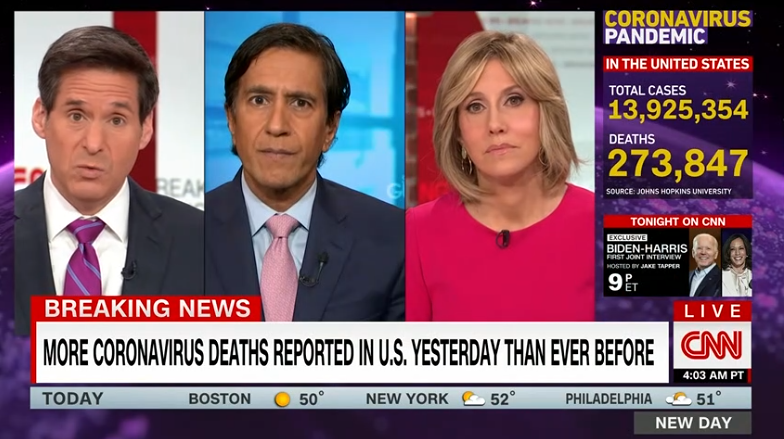We know from research in Acceptance & Commitment Therapy, that experiential avoidance is a source of many psychological problems. It can also be a source of societal problems.
The COVID-19 pandemic is a case in point. Dr. Sanjay Gupta from CNN discusses in the video below how “human behavior is still sabotaging us” despite having advanced medical technology and treatments.
The death toll is at all time highs. Our hospitals are full or near capacity. And Arron Reinert, President of the American Ambulance Association, said “the 911 emergency medical system throughout the United States is at a breaking point.”
The reality is that more people are dying and the sick increasingly have no place to go. Gupta somewhat rhetorically asked “if the entire country is on fire, what is the escape hatch?”
As behavioral scientists, we know that “education” isn’t enough. People already know what to do, but they aren’t doing it. And that’s because of what we know about how language works (see our related article here). Moreover, others have suggested that humans haven’t evolved to respond to threats in the form of abstract statistics, but rather to experiential threats, such as loved ones being infected or dying (see our related article here).
The United Nations Secretary General Antonio Guterres said earlier this week “Nature always strikes back, and is doing so with gathering force and fury.” COVID-19 is nature striking back, and with a fury no one could have imagined.
The grim reality seems to be that the vaccine is our only hope. The world can’t afford another lock down, unless governments pay their people to lock down, which seems highly unlikely.
So pretty please, wear a mask, distance, and wash your hands.











